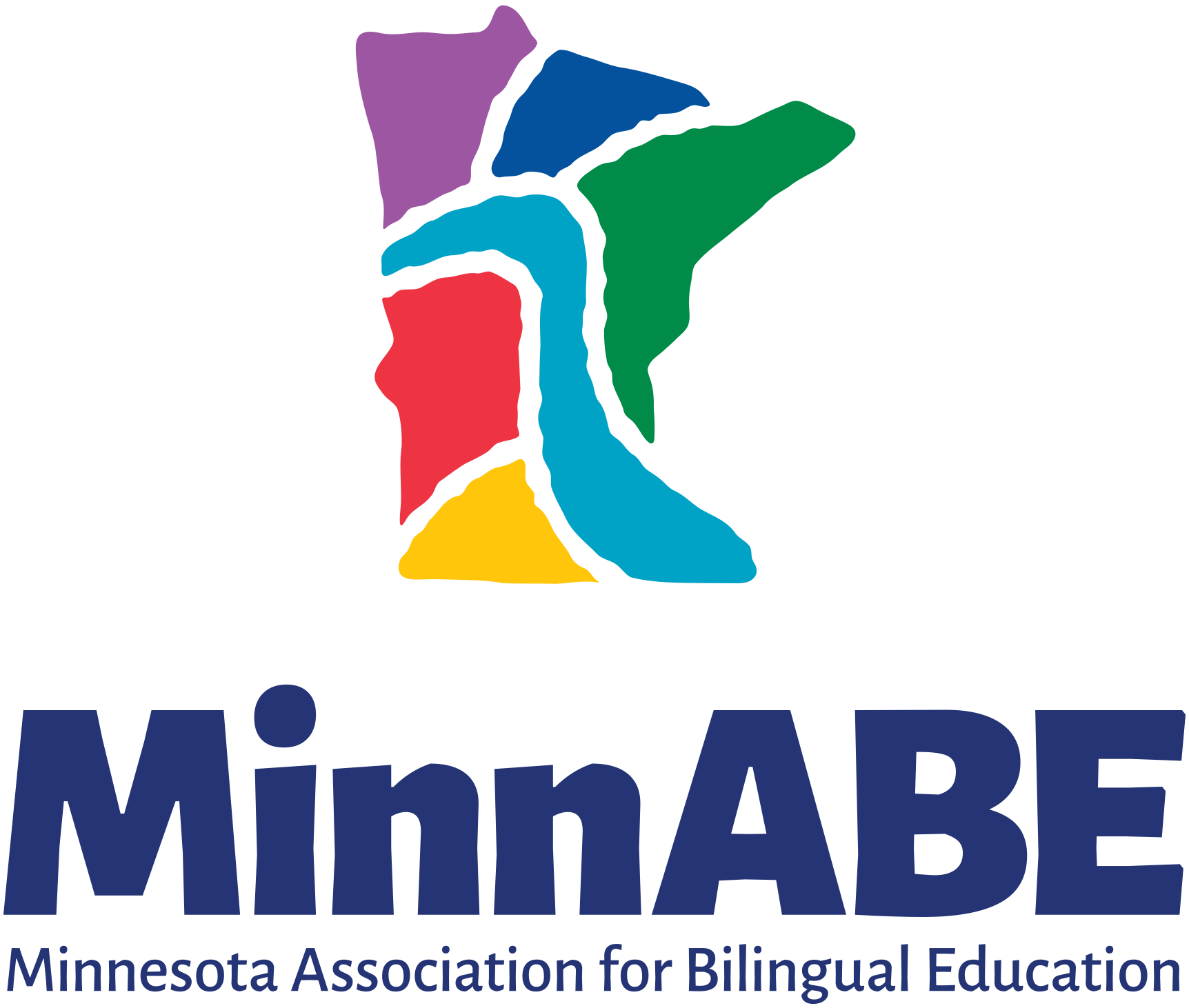
ON THE EXECUTIVE ORDER ESTABLISHING ENGLISH AS THE OFFICIAL LANGUAGE OF THE UNITED STATES
We, Minnesota Association for Bilingual Education (MinnABE), oppose the designation of English as the official language of the United States. The area now known as the USA has a multilingual past, both before and after the United States was established as a country. In the 21st century, the USA continues to be a multilingual nation with approximately 350 languages, including 175 Native American languages still spoken today and hundreds of languages of immigrant origin, which includes English. The USA is one of the most linguistically diverse countries in the world and we should celebrate that reality, not diminish it.
The designation of English as the official language of the USA communicates a narrow-mindedness regarding how to be “American” and who we welcome to this country. Our identities as Americans can occur in any language; English is not superior in its ability to convey an American identity or connection. Americans can speak Tagalog, Ojibwe, Vietnamese, Swahili, Spanish, and any other language they want. Furthermore, what we call “English” is not a stable phenomenon; language is constantly changing over time and there are many varieties of this language such as African American English, Chicano English, and Singlish. Officializing one over another shows a severe misunderstanding of how languages function and how people communicate.
All people in the United States, no matter their citizenship or immigration status, deserve access to information in a language they can understand. An English-only policy results in discrimination against non-English speakers, limiting their access to important services like education, healthcare, legal assistance, and government programs. This policy exacerbates inequalities and creates barriers for immigrant communities. People will not be able to fully participate in society, resulting in the perpetuation of linguistic imperialism. People who speak English are not superior to people who do not speak English.
Our world is increasingly interconnected and many professions require multilingual skills. English-only policies can hinder collaboration in international settings and limit opportunities for people who speak other languages. There is strong evidence supporting the cognitive advantages of multilingualism, such as improved memory, focus, and multitasking abilities. English-only policies could stifle these benefits by not encouraging multilingualism in society. The world is not just the United States and the world does not just speak English.
In sum, making English the official language of the United States is a harmful policy that isolates people, ignores connections across cultural lines, and is divisive for communities. MinnABE regards the President’s Executive Order that establishes English as the official language of the United States as exclusionary, antagonistic, and factually incorrect. Our organization continues to advocate for and celebrate multilingualism, multiculturalism, and linguistic diversity in all forms.
ON THE DISMANTLING THE DEPARTMENT OF EDUCATION
We, Minnesota Association for Bilingual Education (MinnABE), oppose the dismantling (and proposed abolishment) of the U.S. Department of Education. We consider public education to be a human right that is the responsibility of a modern society to provide for all children, no matter their citizenship status or that of their parents. In order to serve this human right, our country needs a national-level Department of Education that offers resources, enforces accountability, and works a clearinghouse for encouraging best practices in education. Keeping the Department of Education open, fully staffed, functional, and funded ensures that access and opportunities for all students would continue.
The U.S. Department of Education operates as a set of guardrails and checkpoints to guarantee that all students receive meaningful educational opportunities regardless of home language, disability status, gender status, or income-level. This necessary department offers baseline expectations for states to follow. Without baseline expectations, these protections become checkerboarded over all 50 states, resulting in 50 different definitions of what minimum requirements are supposed to be. That inconsistency means that students in one state will have certain protections and opportunities while students in the state next to them will not.
In addition to distorted educational experiences, dismantling the U.S. Department of Education strips our nation of beneficial programs and oversight. The Office of English Language Acquisition, the Office for Civil Rights, the Institute for Education Sciences, the Office of Federal Student Aid, the Office of International and Foreign Language Education, and the Office of Elemenary and Secondary Education have all lost workers and/or been effectively closed. The loss of these offices and the people who staff them means that the safety net for the most vulnerable students is abandoned. The essential funds from Title I for high-poverty schools is also under threat, which is an unacceptable step towards disregarding the effects of poverty on educational attainment.
As a modern society that responds to the need to fully educate our children and provide the resources to the adults who dedicate their lives to education, our nation must manage the commitments and obligations through a national-level department that is dedicated to these services. Our children and our educators deserve a U.S. Department of Education that promotes their best interests regardless of political trends.
